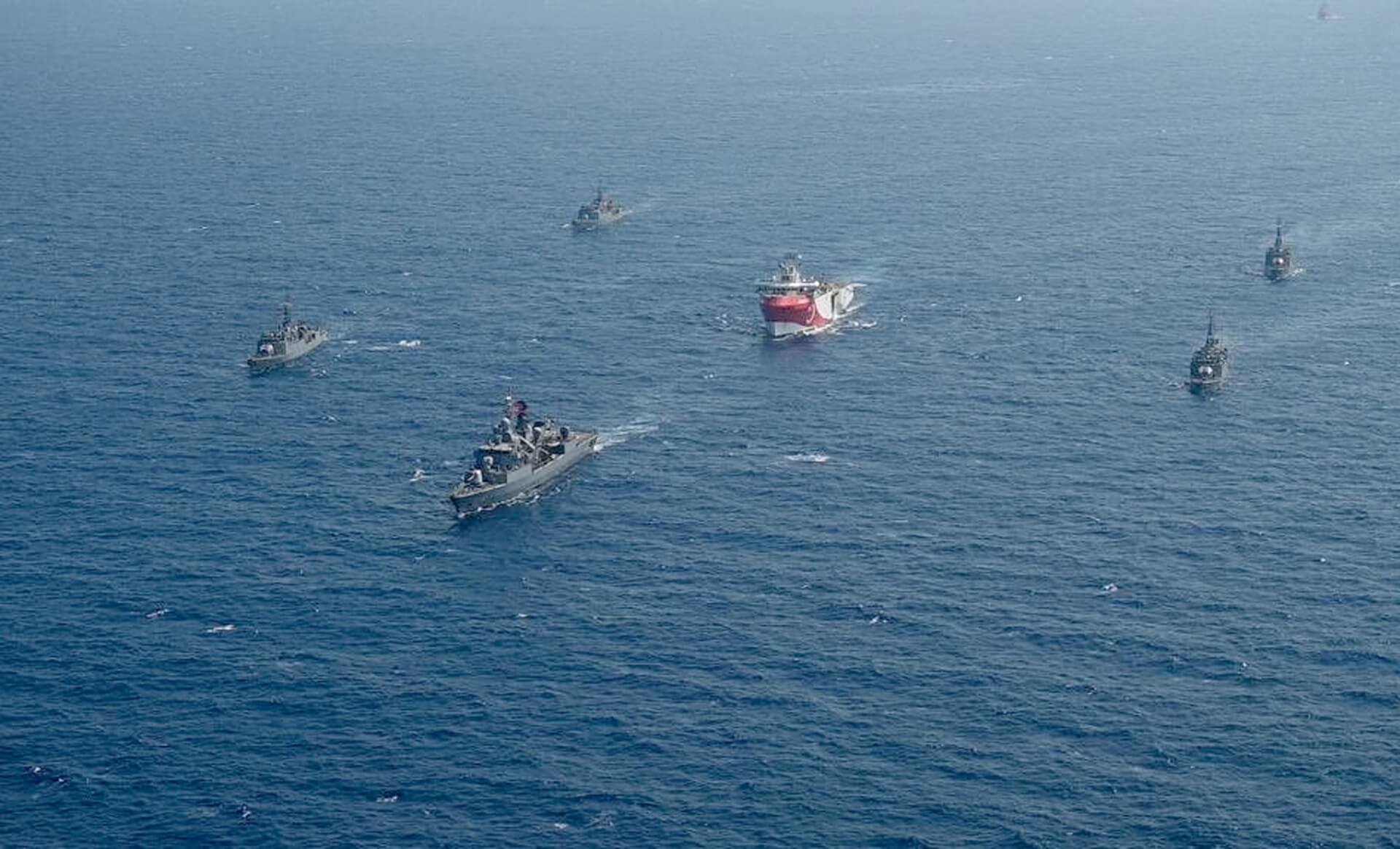Greece and Turkey have announced that they will conduct rival military exercises beginning Tuesday in the eastern Mediterranean, amid rising tensions between the two nations over offshore energy rights.
Turkey on Monday announced that its seismic research vessel, Oruç Reis, would continue its exploratory drilling in the disputed waters until August 27, marking a four-day extension from its original August 23 deadline. The announcement irked Athens, which then issued an advisory to ships (Navtex) that its air and naval forces will conduct live-fire exercises over three days in the area. Defending the country’s decision, Greek government spokesperson Stelios Petsas said, “Greece is responding calmly and with readiness both on a diplomatic and on an operational level. And with national confidence, it does everything needed to defend its sovereign rights.” Greek officials had also said on Friday that the UAE’s F-16 fighter jets would be arriving in Crete for joint training this week.
Turkish President Recep Tayyip Erdogan condemned Greece’s actions, accusing Athens of endangering navigational safety with such drills. He said that moving forward, Greece would be responsible for any “negative developments” in the region and be the “the only one to suffer”. “We have shown those trying to prevent us in the Eastern Mediterranean that we will claim our rights even if this man using force when necessary,” Erdogan added. On Monday afternoon, the Turkish Defense Ministry announced via Twitter that Turkish and allied navy ships would conduct maritime training in the eastern Mediterranean on Tuesday to “promote coordination and interoperability”.
The developments in the eastern Mediterranean have prompted international calls for restraint and dialogue, with NATO chief Jens Stoltenberg urging the nations to resolve the issue “in a spirit of allied solidarity and in accordance with international law”. Last week, France asked its navy to assist Greece in the region, and accused Turkey of provoking tensions in the eastern Mediterranean.
Germany, which currently holds the EU’s rotating presidency, is expected to send Foreign Minister Heiko Maas to meet with Greek PM Kyriakos Mitsotakis and Turkey’s Erdogan to try and reduce tensions between the neighbors. “From our standpoint, direct dialogue and steps from both sides to deescalate the situation are needed to find a solution to (reduce) tensions,” German Foreign Ministry spokesman Christofer Burger told reporters in Berlin. “We have a big concern that these tensions could have even more grave consequences.” The EU is also expected to discuss this issue at an informal meeting in Berlin this week.
Greece and Turkey Plan Rival Navy Exercises Amid Dispute in the Eastern Mediterranean
Tensions have been rising between Athens and Ankara over offshore energy rights.
August 25, 2020

SOURCE: ASSOCIATED PRESS
